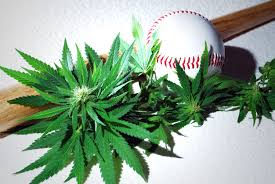We, as a nation, are changing the way we feel about cannabis.

Gone are the days of Reefer Madness, the hysteria of the War on Drugs. As more and more states decriminalize and legalize cannabis, we are seeing a new American attitude that views it as much a business opportunity as something to be feared or banned.
These attitudes are making their way into the sporting world as well. Some professional leagues still test for weed, though how eager they are to actually bust athletes is a matter of debate. And athletes are now seriously turning toward cannabis as a pain-management solution — as we learn more about the dangers of opioid abuse, weed appears more and more like a safer option.
While the changing stigmas around cannabis present exciting opportunities for some, it’s not all that simple. We still live in a country where people, too often people of color, are being arrested for selling and using a product that is already making entrepreneurs, in the sporting world and outside of it, tons of money.
This is sports in the age of cannabis.
“… For people to kind of accept the healing properties of cannabis, I really felt like athletes are going to be the key to remove the stigma that’s been there.” —Ryan Kingsbury, founder of Athletes For Care

Former NFL players suffer opioid addiction at four times the rate of the general population.
“At the foundation of what I’m talking about is player health and safety. If you want to get distracted by the stigma or what not, well that’s on you.” —Titans linebacker Derrick Morgan
“We need to get to medicating with bio-based medicine, which is plant-based medicine, because we cannot continue down this path that we’re going with the opiates and benzodiazepines, or else we’re going to lose a generation.” —Former Jets DE Marvin Washington





